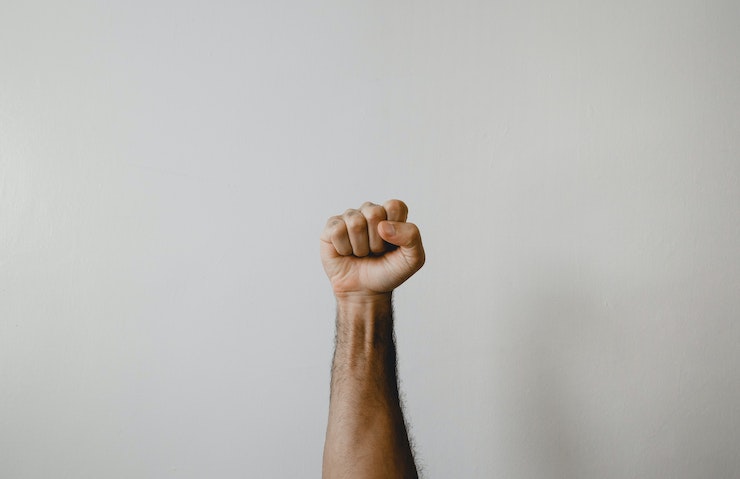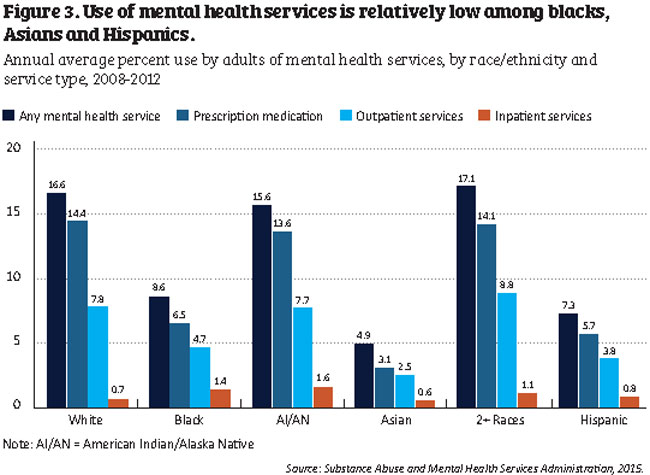Mental Health doesn't discriminate, right?
4-5 Minutes

Long before COVID-19, accessibility to mental health resources and services has been fragmented and overlooked, especially for communities of color and underrepresented populations. The end of July marks the Minority Mental Health Month, or more recently known as Black, Indigenous People, and People of Color (BIPOC) Mental Health Month - to accurately distinguish and honor the experiences of each group and individual.
Mental health conditions do not discriminate based on race, ethnicity, or gender, however, these factors contribute to the ease or the lack of access for mental health treatment and information.
As described by the Clarity Clinic, “The importance of dedicating the month of July as National Minority Mental Health Awareness Month is that it shines a light on the mental health struggles that are unique to these groups of people.”

The Massachusetts General Hospital and Mental Health America have gathered mental health resources for BIPOC. Mass General’s comprehensive list covers mental health provider directories, online support groups, virtual resources, and resources for clinicians. In addition, C19 Coalition has posted a list of mental health resources geared towards the Black community on Instagram.
July highlighted the unique stories of communities. Stories such as an undocumented individual may not choose to use an emergency department after a severe panic attack due to fear of deportation or when a Black man may not address an issue regarding his mental health due to cultural stigma. These are only two stories out of thousands that highlight the need to eliminate barriers, both culturally and systematically, between mental health resources and diverse populations.
Now more than ever, these stories are being amplified as the outbreak of COVID-19 has shed light on the many inequities that exist within the healthcare system and beyond. “We are seeing diverse pathways to poorer mental health,” says Frank Yang, advisor to the C19 Coalition’s mental health initiatives. According to the U.S Department of Health and Human Services, some BIPOC groups may even respond more strongly to the stressors of a pandemic. Additionally, ABC News reported that the “Disaster Distress Helpline” at the Substance Abuse and Mental Health Services Administration (SAMHSA) experienced an 891% increase in call volume just in the month of March.
So, what can be done?
First, empathy needs to be grounded in every conversation with those who have been affected by COVID-19. The ever-changing climate of COVID-19 in the United States has left everyone outside of their baseline. COVID-19 has created an accelerator for increased stress and anxiety as people have been forced to work remotely, or have lost their jobs due to the pandemic. Even more, there are essential workers who are uncomfortable or at high-risk for COVID-19 and do not have the option or privilege to sit at home and work. Thus, moving the baseline even further.
As reported by the Economic Policy Institute, “People of Color make up the majority of essential workers in food and agriculture (50%) and in industrial, commercial, residential facilities and services (53%).” This largely contributes to the disproportionate rates of COVID-19 presented in many communities of color and the increased risk for stress and anxiety.
Although adaptability and ‘pivoting’ have been the golden ticket to carry on, this doesn’t neglect how times have changed, especially in the workplace.
This brings upon the second call to action - mental health in the workplace. The Harvard Business Review (HBR) reported that almost 60% of employees have never discussed mental health with their coworkers nor supervisor. Yet, over 200 million workdays are lost due to mental health conditions each year. For many, mental health is never prioritized or even discussed at their company. Nor have company leaders supported or advocated to reach out for mental health resources. HBR has reported that employees do want their leadership to speak about mental health. Many companies continue to overlook the mental health of their employees, thus, a lack of self-identification for employees in fear of losing their jobs continues.
At the C19 Coalition, we see the importance that leadership can have on mental health across a company. As COVID-19 effects continue, we have a goal to work with decision-makers and leaders to ensure that mental health is at the forefront.
Due to Covid-19, we are seeing diverse pathways to poorer mental health. Recent studies in the U.S. show an increase in experiences of anxiety, fearfulness, sleep problems, irritability, and feelings of hopelessness. As we work to create physically safe environments in this pandemic, the importance of creating emotionally safe environments for ourselves and our communities should be a priority as well. Frank Yang, Advisor to C19 Coalition’s Mental Health initiative
Our mission is to equip partners with the knowledge and resources needed to support and protect their organizations physically and mentally. Initially, we offered partners and volunteers a hotline (1-855-904-3506) to be connected with existing resources and provided a list of resources through the website. We continue to offer these resources, however, we have now expanded to reach out to organizations such as the Black Mental Health Alliance, to bridge the gap in mental health resources, onboarded a mental health expert, and continue to share mental health resources across all social media platforms.
We are constantly ‘pivoting’ to bring innovation and resources to our partners and beyond to aid in mental health awareness. Let us strive to practice self-care and protect communities, mentally and physically.
For more information, email us at info@c19coalition.org.
Alizay Rizvi is a blogger with the C19 Coalition. She has worked on health equity programs, including at the American Heart Association, to increase diversity in the health and social justice sector and aid in finding solutions to lessen health disparities and inequities in the United States. As a young professional, she is passionate about educating and empowering her generation to become agents of change. You can find her on LinkedIn.